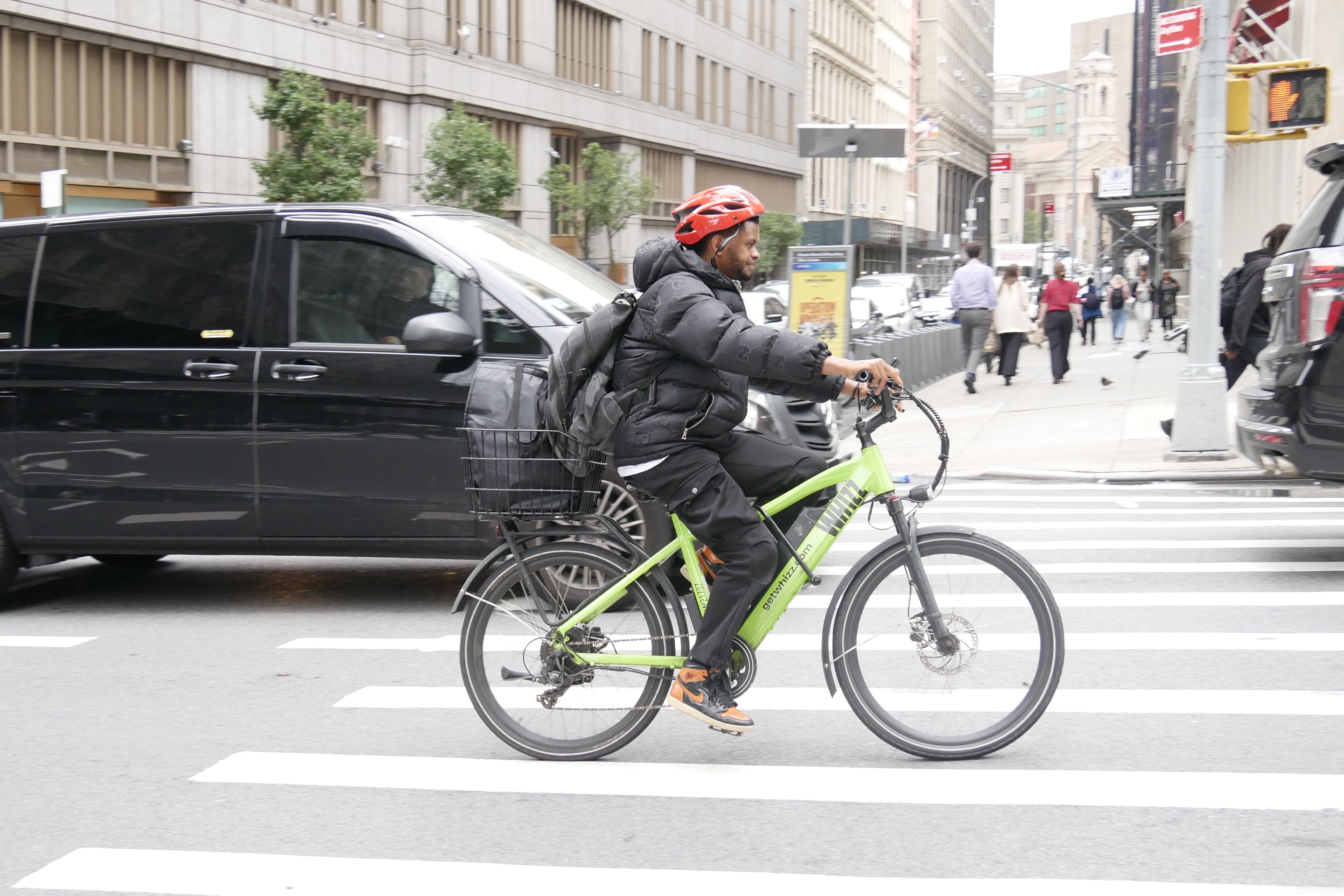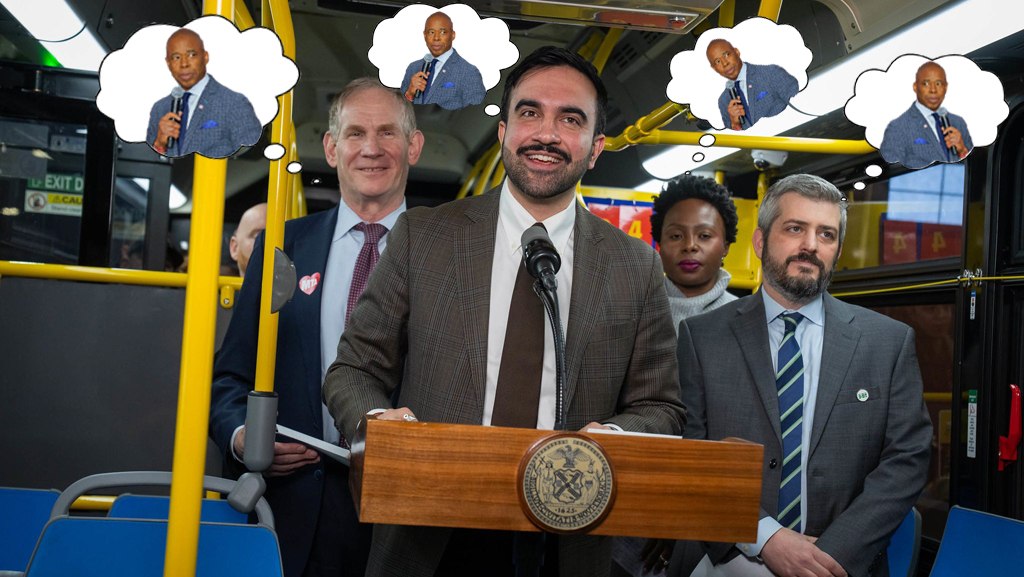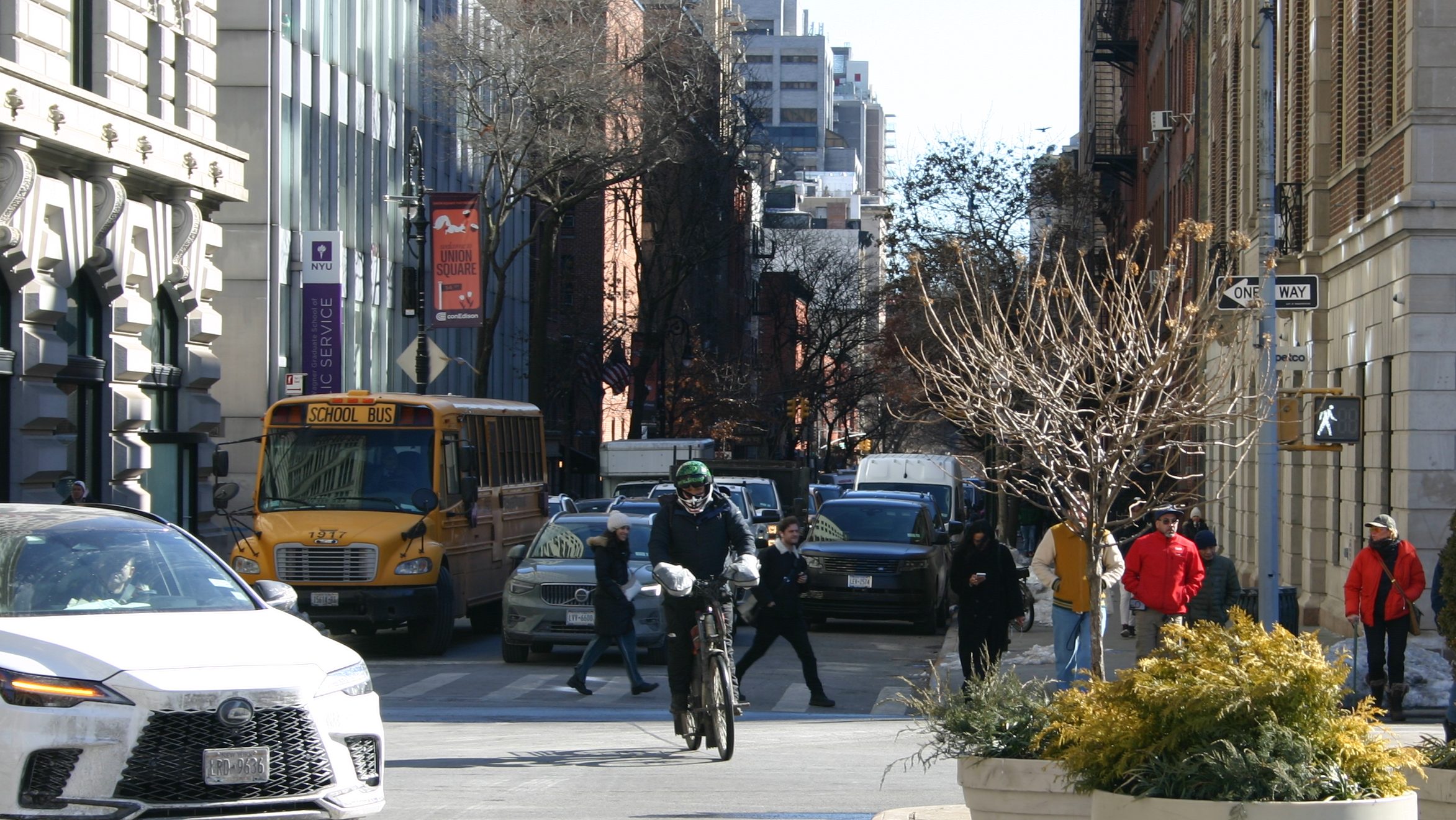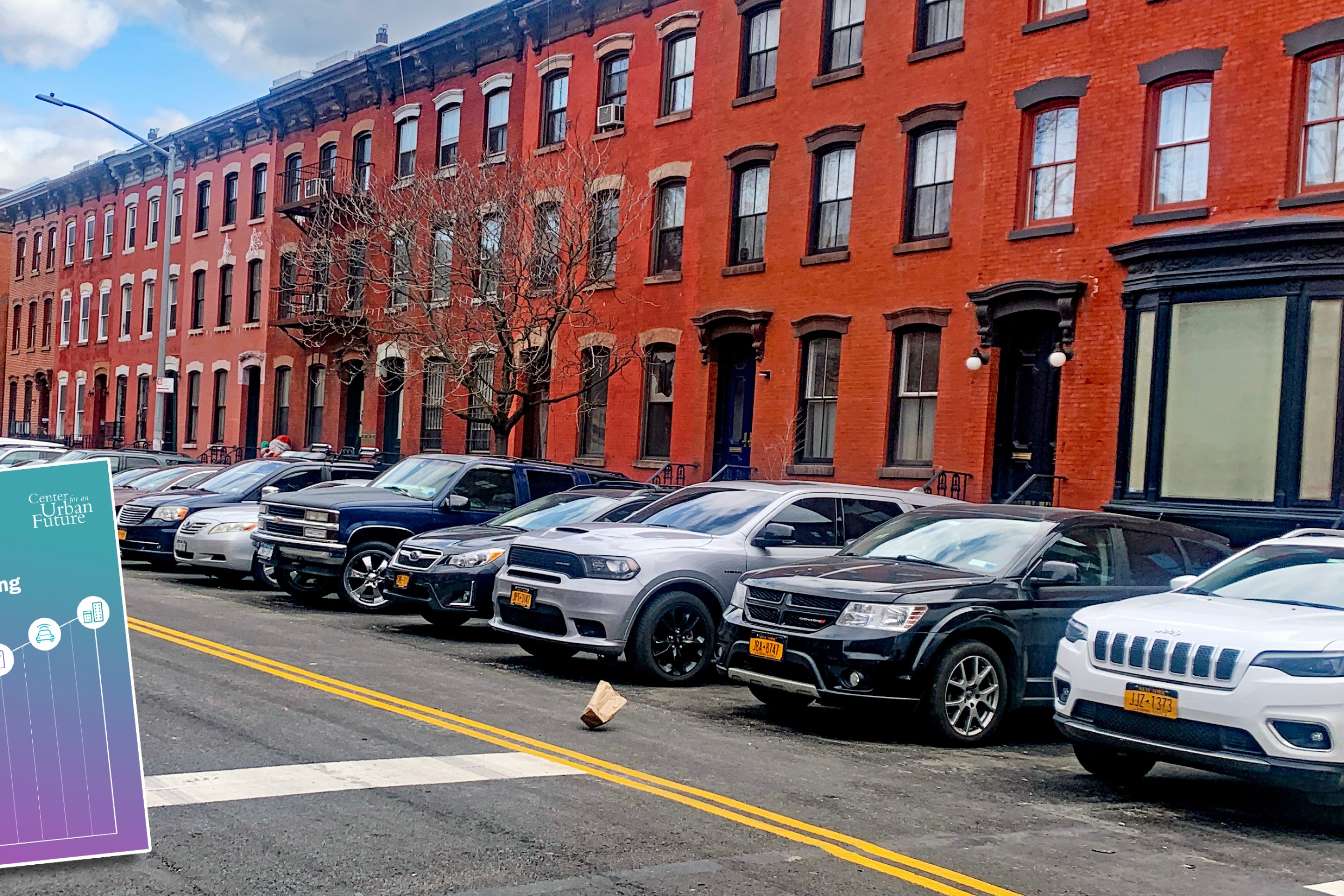
Not surprisingly, the opening of the popular new Fairway Market in Red Hook, has significantly increased daily motor vehicle mayhem in this formerly moribund corner of Brooklyn.
Last Thursday evening, July 6, at about 10 pm, Red Hook suffered its first-known Fairway casualty when a woman was hit by a gray minivan at the intersection of Van Brunt and Wolcott Streets. The van had just exited the Fairway parking lot five blocks away. Her name and condition has not been released, though, hospital officials say that she is alive.
For months prior to the opening of the new Fairway, Red Hook residents clamored for DOT to do something to prevent the expected traffic crush. The 16-block stretch of Van Brunt from the waterfront to Hamilton Avenue has only one traffic signal and that was installed with the opening of the new Brooklyn Cruise Terminal in April.
The Daily News spoke with some of the locals about the situation:
"We need a damn light," said Madigan Shive, 29, a waitress at the Hope and Anchor diner just steps from the [crash] scene.
"This neighborhood is just not ready for the traffic," she said, adding two weeks ago she saw a car strike a kid on a bicycle at the same intersection.
Red Hook Civic Association President John McGettrick has also been pressing the city for a traffic signal at Van Brunt and Wolcott Streets.
DOT refuses to install one and has chosen to wait until the Fall before doing any analysis of or planning for the traffic problems created by the new grocery store and the neighborhood's booming development.
Agency spokesperson Kay Sarlin told the Daily News that traffic signals could not be installed on Van Brunt because the area's traffic counts did not meet federal guidelines. She said:
There also must be a certain number of cars traveling through the area to meet federal standards for new traffic lights, she said, and added that as recently as this winter - when DOT studied the need for cars - "the traffic didn't warrant it."
This line about adhering to federal standards is something that DOT often tells community groups when DOT does not want to do what the community is asking it to do.
The federal guideline that Sarlin is referring to is the Manual for Uniform Traffic Control Devices, or MUTCD.
MUTCD is just a guidline. It is not law. The manual provides a set of recommendations that municipalities around the country can choose to follow or not. Very often, these guidelines are completely irrelevant to New York City, which has a very different transportation environment than most of the rest of the sprawling, suburban United States.
But don't take it from me. Let Michael Primeggia, DOT's Deputy Commissioner for Traffic Operations explain it to you himself:
Below is a one-minute video clip filmed at a Union Square community meeting in October, 2005:

DOT Deputy Commissioner Michael Primeggia
Running time: 1 minute. QuickTime
For some time now, community and business groups around Union Square have been pushing to make a number of improvements to the area. One of the smaller items on their list is a mid-block crosswalk connecting the north side of Union Square Park to the entrance of the Barnes & Noble on 17th Street.
In this video clip you will first see DOT Manhattan Borough Commissioner Margaret Forgione telling the communty that federal guidelines prevent the city from installing a mid-block crosswalk on 17th Street, the same thing Sarlin told the Daily News.
Next, an audience member, off camera, asks whether these federal guidelines "are a legal requirement or not."
Primeggia, who rarely speaks in public, jumps in to answer the question. He says, "None of the warrants are legal requirements. They all are guidelines that we use and that we choose to follow."
Just as there is no federal rule or law preventing DOT from installing a midblock crosswalk at Union Square, there is no law preventing DOT from installing traffic signals in Red Hook. As Primeggia says, The federal standards are just "guidelines." DOT can "choose to follow" them or not.
Clearly, it is important for a big city transportation agency to have a strong set of policies and to implement them consistently. But when DOT tells New York City communities that a federal "warrant" prevents the installation of traffic signals, crosswalks, or anything else, DOT is trying to pass the buck and avoid accountability. Federal guidelines are not forcing these policies on New York City's streets. These are policies that DOT is choosing to implement.
If you are interested in delving into this issue further, check out this fascinating 15-minute video clip in which The Open Planning Project's Mark Gorton, a professional engineer himself, breaks down DOT's engineering methodology and shows how it harms New York City:

Mark Gorton on DOT's Engineering Methodology
Running time: 15 minutes. QuickTime
(Photo: Bluesage on Flickr)





